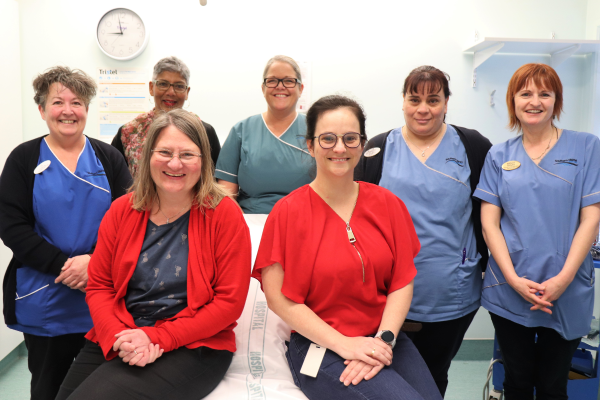New service benefits patients with diabetic foot disease
People with diabetes in Southland, who are at high risk or have active foot disease, will benefit from a new service that brings patients together with a multidisciplinary team of specialists every Friday.
Southern DHB Portfolio Manager, Primary Care, David Murray, said diabetic foot ulcers are a complicated condition which requires an integrated, multidisciplinary approach to address all aspects of diabetes management.
“International experience has shown that a multidisciplinary approach to diabetic foot care significantly improves patient outcomes by reducing the number of hospital admissions and amputations.”
Southern DHB and WellSouth have been working together to design and implement a new system of care for diabetic patients with active foot disease and high risk feet.
“Until now, there has been an Otago multidisciplinary team based at Dunedin Hospital, which has held a clinic every Friday afternoon since 2012. The clinic brings together the expertise of an orthopaedic surgeon, a vascular surgeon, an endocrinologist, a wound care specialist, a diabetic nurse specialist, a podiatrist, a registered nurse, and the orthotics team, enabling a comprehensive assessment and treatment plan to be sought for the benefit of the patient.
“The team has a holistic approach to patient-centred care that includes optimal diabetes control, effective local wound care and infection control, pressure relieving techniques and ensuring adequate blood flow to the limb.
“Patients are usually referred by their GP or internally within the hospital services, and once at the clinic and assessed, a treatment plan is agreed with the patient and their family.
“An audit assessing benefits of the clinic has shown a 50% reduction in acute admissions, involving patients known to the weekly diabetic foot clinic, to the Dunedin Hospital over a 12 month period,” he said.
Now, the same successful model is being rolled out in Invercargill, at Southland Hospital, for the Southland region. The Southland Team includes additional nursing and podiatry staff.
The team at Southland Hospital and their patients will link via telehealth to Jo Krysa, a vascular surgeon in Dunedin.
It means that all diabetic foot patients in the Southern District will be referred, either by the GP or hospital services, to a single point of entry. The patients will then be triaged to the appropriate service, at a multi-disciplinary team meeting, led by Dr Krysa.
High risk foot referrals will be triaged to the multidisciplinary teams in Dunedin or Invercargill, depending on where they live, or to the secondary, podiatry services in those cities, or to the Southern DHB-funded podiatry service in the community.
The benefits of this new system of care mean patients are referred to the appropriate service, Southland patients can access a multidisciplinary team and clinic, and the degree of urgency for each patient is better able to be determined.
“This is good news for diabetic patients in Southland and the rest of the district. This service puts the patient in the centre, and treats them in a holistic way, giving them access to the specialist skills and services needed to care for them,” he said.
